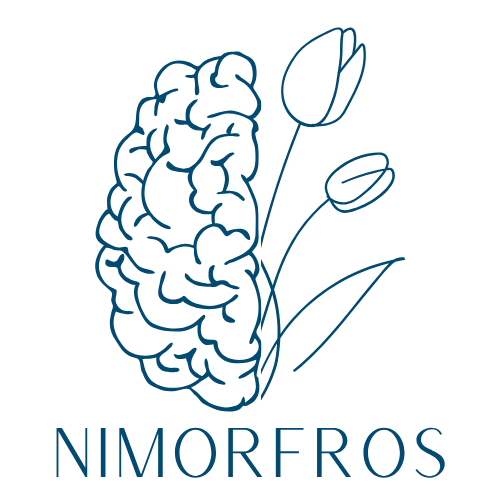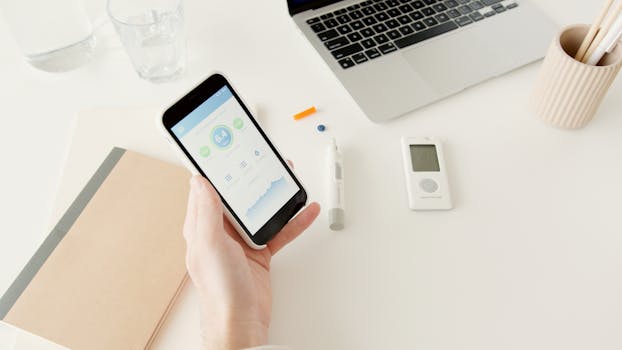Anúncios
Technology has transformed various aspects of our lives, including healthcare. Innovations in technology have not only made health care more efficient but have also improved patient outcomes significantly.
With the rise of digital health tools, patients can now access healthcare resources from the comfort of their homes. This evolution empowers both patients and providers to engage in health management more effectively.
The integration of technology in health care is revolutionizing traditional practices. From telemedicine to artificial intelligence, the landscape is rapidly changing, providing numerous opportunities to improve health and wellness.
Enhancing Access to Healthcare Services
One of the most profound changes brought about by technology is improved access to healthcare services. Telehealth platforms allow patients to consult healthcare professionals without requiring in-person visits.
This increased access is especially beneficial for those in remote areas with limited healthcare facilities. Patients can receive consultations, follow-ups, and even mental health support through videoconferencing tools.
Anúncios
Moreover, online appointment scheduling and digital health records streamline how clinics manage patient flow. This efficiency reduces waiting times and improves the overall patient experience.
Distance no longer poses a barrier to healthcare access; technology has bridged that gap effectively. As a result, more individuals can seek timely medical advice and intervention.
In summary, technological advancements have dramatically improved how patients access healthcare, resulting in better health outcomes for many.
Anúncios
Data Management and Health Records
Digital health records have revolutionized the way patient information is stored and accessed. Electronic health records (EHRs) allow for easy sharing of medical histories among healthcare providers.
This capability enables more accurate diagnoses and personalized treatment plans, as providers access comprehensive patient data instantly. Consequently, it fosters better collaboration among specialists.
Furthermore, EHRs enhance data security, as they often feature encryption and secure cloud storage. This advancement assures both patients and providers that sensitive information is protected.
Additionally, healthcare institutions can analyze aggregate patient data to detect trends and improve overall public health responses. This analytical power is invaluable in monitoring and addressing community health issues.
In conclusion, effective data management through EHRs is crucial for maximizing the quality of healthcare delivery and enhancing patient safety.
Wearable Health Technology
Wearable health technology has quickly gained popularity, providing real-time health monitoring. Devices such as smartwatches and fitness trackers enable users to track various health metrics.
These metrics include heart rate, physical activity, and sleep patterns, helping users maintain a proactive approach to their health. In turn, this facilitates informed decision-making regarding lifestyle changes.
Moreover, wearables can alert users about irregularities, prompting them to seek medical advice promptly. This early detection of potential health issues can lead to timely interventions and better outcomes.
Furthermore, wearables are not limited to fitness; they can also monitor chronic conditions, allowing healthcare providers to adjust treatments as necessary. This capability enhances personalized health management.
In essence, the integration of wearable technology into daily life empowers individuals to take charge of their health, leading to more proactive care.
Telemedicine and Remote Patient Monitoring
Telemedicine has become a game-changer in healthcare delivery, especially in recent years. It allows healthcare providers to reach patients who are unable to visit medical facilities.
Through video consultations, patients receive timely care without the hassle of commuting. This access is vital for those with mobility issues or chronic conditions requiring regular check-ups.
Remote patient monitoring technologies enable healthcare professionals to track patients’ health metrics from afar. These tools can manage various conditions, including diabetes and heart diseases, effectively.
Additionally, telemedicine enhances ongoing care management by allowing providers to continuously monitor patients’ health status. This supports better adherence to treatment plans and lifestyle recommendations.
In summary, telemedicine is reshaping healthcare delivery, improving accessibility, and ensuring continuous patient support.
Artificial Intelligence in Healthcare
Artificial intelligence (AI) has made significant inroads across various healthcare domains. Its applications range from diagnostic tools to predictive analytics and personalized medicine.
A key advantage of AI is its ability to analyze massive datasets quickly. This capability leads to faster and more accurate diagnoses through advanced imaging and pattern recognition technologies.
AI-driven algorithms can identify potential health risks early, providing healthcare providers with vital insights. This proactive approach enhances preventive care strategies and improves patient outcomes.
Moreover, AI can streamline administrative processes, such as scheduling and billing. This efficiency allows healthcare staff to focus more on patient care rather than paperwork.
In conclusion, AI is a powerful tool in healthcare, optimizing diagnostics, improving treatment decisions, and enhancing operational efficiency.
Mobile Health Applications
Mobile health applications have emerged as essential tools for managing personal health. These apps often enable users to track fitness goals, monitor symptoms, and keep a record of medications.
By empowering individuals to take control of their health, mobile applications foster engagement and accountability. Users are more likely to adhere to health plans through gamification and reminder features.
Moreover, many health apps provide access to telemedicine services. Thus, users can consult with healthcare providers directly from their smartphones, enhancing accessibility and convenience.
Additionally, some applications focus on specialized needs, such as mental health or chronic disease management. These tailored resources can significantly improve patient care and self-management.
In summary, mobile health applications provide invaluable tools for personal health management, fostering a proactive approach to wellness.
Confronting Challenges of Health Technology
Despite the numerous advantages of technology in healthcare, several challenges persist. One major issue is the digital divide, which can exclude certain populations from accessing health tech.
Not all patients have equal access to smartphones or reliable internet connections. As a result, disparities in health information and services can arise, complicating overall care.
Additionally, concerns about data privacy and security must be addressed. With increasing amounts of personal health information online, ensuring robust cybersecurity measures is imperative.
Moreover, the rapid pace of technological change can create a skills gap for healthcare professionals. Continuous education and training are necessary for staff to effectively utilize new tools.
In conclusion, addressing these challenges is vital for ensuring technology’s successful integration into healthcare systems, promoting equity and enhancing patient safety.
Conclusion
The role of technology in healthcare is transformative, leading to unprecedented advancements in how care is delivered and accessed. From telemedicine to AI-driven diagnostics, technology is reshaping patient experiences.
Continuous innovation provides opportunities for improved health outcomes through enhanced access, data management, and personalized treatment. However, it is important to confront existing challenges to maximize these benefits.
In summary, the future of healthcare is undoubtedly intertwined with technology. Embracing these advancements will pave the way for a healthier society, benefiting both patients and providers alike.



